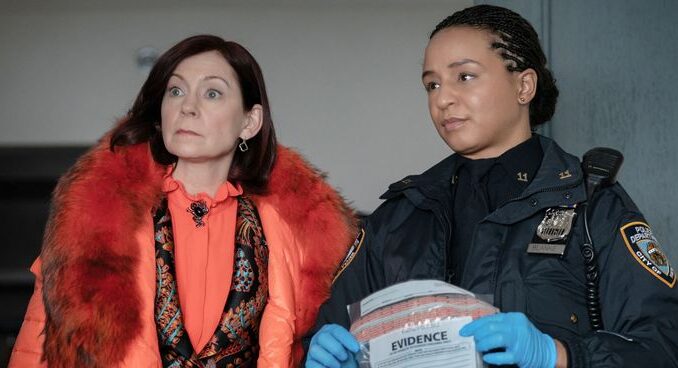
The news reverberated through the “Elsbeth” fandom like a rogue saxophone note in a carefully orchestrated symphony: Carra Patterson, the actress who brought the sharp and insightful Kaya Blanke to life, would be exiting her role as a series regular after the inaugural season. The announcement, however, wasn’t delivered with the solemn finality of a death knell. Instead, it came with a promise, a reassuring murmur that Patterson would return as a guest star in the upcoming season. This shift raises fascinating questions about the show’s dynamics, the evolving role of its supporting characters, and the very nature of network television storytelling in the age of streaming.
The Shifting Sands of Procedural Dramas
Procedural dramas, traditionally known for their formulaic structure and episodic resolution, have been slowly undergoing a metamorphosis. Shows like “Elsbeth”, while still adhering to the core concept of solving a weekly crime, are increasingly focusing on character development and exploring the intricacies of relationships within the core cast. Kaya Blanke, with her grounded presence and insightful observations, became an integral part of Elsbeth Tascioni’s world, offering a counterbalance to the eccentric brilliance of the titular character. Her departure, even in a reduced capacity, signifies a conscious decision to recalibrate the show’s focus, potentially prioritizing Elsbeth’s interactions with other characters or exploring new facets of her personality.
The reasons behind Patterson’s shift to a guest star role remain largely undisclosed, leaving fans to speculate. It could be due to:
- Scheduling Conflicts: Acting careers are often a tapestry of overlapping projects. Patterson may have other commitments that preclude her from dedicating the time required for a series regular role.
- Creative Direction: The writers may have felt that Kaya’s arc had reached a natural point of culmination, and a recurring role allows for strategic and impactful appearances.
- Personal Choices: Actors sometimes choose to step back from demanding schedules to pursue other interests or spend more time with family.
Regardless of the reason, the promise of her return as a guest star is a strategic move. It allows the show to maintain continuity, revisit established relationships, and potentially introduce new elements to Kaya’s character without the constraints of a full-time commitment. It’s a way to have their cake and eat it too, offering both fresh storylines and familiar faces.
The impact of Kaya’s reduced presence remains to be seen. Her absence undoubtedly leaves a void in the dynamic between Elsbeth and the NYPD. The show will need to fill that space, either by elevating another supporting character or by introducing someone new. How successfully they manage this transition will be a crucial factor in the show’s continued success. Will Elsbeth find a new confidante? Will her interactions with Wagner become more central? Only time will tell.
In conclusion, Carra Patterson’s transition from series regular to guest star in “Elsbeth” represents more than just a casting change. It’s a reflection of the evolving landscape of network television, the increasing emphasis on character-driven narratives, and the delicate balance between satisfying loyal fans and forging new creative paths. While the shudders of the initial shock are still being felt, the promise of Kaya’s return offers a glimmer of hope and a compelling reason to eagerly anticipate the next chapter of “Elsbeth’s” quirky and captivating journey.
